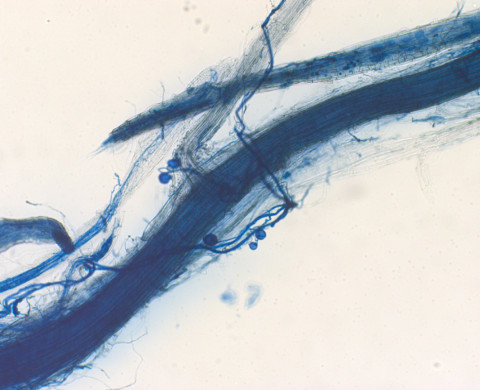Microbial Farming to increase plant productivity

Details
- Department
- Microbial Ecology
- Research group
- Kuramae Group
- Funding
- TKI Topsector Tuinbouw & Uitgangsmaterialen grant number TU17008
Plant-growth promoting microbes (PGPM) are alternative to traditional fertilizers for enhancing plant productivity and improving soil quality without environmental pollution. The use of PGPM in agriculture has been hampered by a lack of reproducible results and the difficulty of transferring this technology to the field. This inconsistent success primarily reflects competition or resistance of the original soil microbiome to inoculants, as well as the negative effects of management practices such as fertilization on plant interactions with the soil microbiome and the efficiency of ecosystem services delivered by PGPM. However, the influence of the indigenous soil microbiome on plants remains largely unknown. Here we investigate the tripartite, PGPM-plant-soil microbiome interaction in plant quality and productivity using state-of-the-art ‘omics’ and bioinformatics approaches to investigate facilitation (positive interactions) and competition (negative interactions) by both microbes and PGPM within the plant realized niche following gradients of both soil diversity and nutrient availability.
Details
- Department
- Microbial Ecology
- Research group
- Kuramae Group
- Funding
- TKI Topsector Tuinbouw & Uitgangsmaterialen grant number TU17008
Experts
-

-
Márcio Leite
Researcher , Microbial Ecology
-
Agata Pijl
Research assistant , Animal Ecology | Microbial Ecology
-
Cristina Rotoni
PhD Candidate , Microbial Ecology
Development of innovative methods for starting material production using PGPM for sustainable crop production by combining techniques to reduce nutrient input and enhance the efficiency and long-lasting effects of PGPM.



